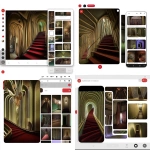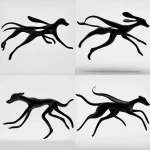Explore the Best AI Image Gallery
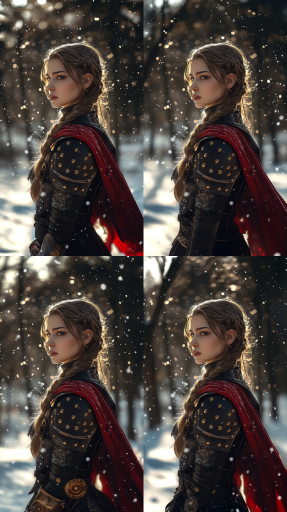
The Future of Marketing: Harnessing the Power of AI-Generated Images
In today's fast-paced digital world, visual content is the cornerstone of effective marketing strategies. The rise of artificial intelligence (AI) has opened new avenues for creating compelling images that resonate with target audiences. From personalized advertisements to unique branding elements, AI-generated images are making a significant impact on the marketing landscape, transforming the ways brands communicate and engage with consumers.
The Impact on the Creative Industry
The integration of AI in marketing isn't merely a trend; it's a transformative force reshaping the creative industry. Traditional processes of image creation that once relied heavily on manual work are being expedited through AI technologies. For instance, platforms like Adobe Sensei utilize AI to enhance images, streamline workflows, and cater to diverse consumer preferences. This allows creative professionals to focus more on strategy and high-level concepts rather than getting bogged down by time-consuming technical tasks.
Moreover, AI-generated images encourage innovative campaigns and fresh ideas. Brands often struggle with creative blocks or recycling outdated concepts, but AI can offer numerous variations and suggestions. This can lead to exciting collaborations between human creativity and machine intelligence, resulting in visually arresting campaigns that capture attention and drive engagement.
Potential Uses in Marketing
AI-generated images have a broad range of applications in marketing, including but not limited to:
- Personalization: Marketers can utilize AI to create customized visuals tailored to individual customer preferences and behaviors. By analyzing data, AI can generate images that resonate with target audiences, enhancing connection and driving sales.
- Social Media Content: As social media continues to flourish, engaging visuals are crucial for capture user attention. AI tools can produce high-quality images aligned with current trends, ensuring brands remain relevant.
- Product Design and Packaging: AI can simulate various designs for products or packaging, providing brands with countless design options to evaluate without the need for physical prototypes.
- Advertising Campaigns: AI tools can generate targeted advertisement visuals in real time, adjusting them based on audience reactions for improved engagement and conversion rates.
Ethical Considerations
While the capabilities of AI-generated images are impressive, they also raise several ethical questions. Concerns around copyright, ownership, and the authenticity of AI-created content are paramount. For instance, if an AI generates an image that resembles the style of a well-known artist, who owns the rights to that image? Additionally, there is the risk of misleading representations; if companies use AI-generated images to fabricate scenarios or products that do not exist, this can erode trust with consumers.
Furthermore, the potential for AI to create deepfakes can have severe implications for misinformation in marketing campaigns. As the line blurs between real and artificial, marketers must use AI-generated images responsibly and transparently to foster trust and credibility with audiences.
Future Trends in AI-Generated Images
The evolution of AI-generated images in marketing is just beginning. Looking ahead, we can anticipate several trends that will shape this field:
- Increased Collaboration: As AI becomes more sophisticated, collaborations between AI and human creators will yield richer and more nuanced content, driving creativity into new realms.
- Real-time Generation: The ability to create images in real-time based on live data could revolutionize how brands react to trends and consumer behavior.
- Enhanced User Experiences: Brands will likely leverage augmented reality (AR) and virtual reality (VR) technologies, using AI-generated images to create interactive and immersive marketing experiences.
- Accessibility for Small Businesses: AI tools will democratize design, making high-quality image creation accessible to small businesses and startups that may lack extensive marketing budgets.
Conclusion
The ability to generate stunning images using AI is more than just a technological advancement; it represents a paradigm shift in marketing strategies. By harnessing AI-generated imagery, brands can capture consumer attention, foster deeper connections, and push the boundaries of creativity. However, as we embrace these innovations, marketers must remain vigilant about ethical considerations, ensuring transparency and authenticity to maintain consumer trust. The future of marketing lies in the balance between creativity and technology, a blend that, if navigated well, promises exciting possibilities for brands and consumers alike.


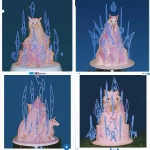


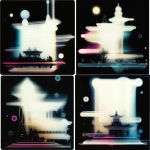



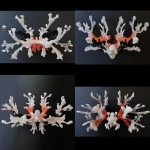

](https://images.ai-img.art/thumbnails/150/03913d58cd48bd2c88b0cabd5338b3a738d9b391a6bef375ae801221036f1642.webp)





](https://images.ai-img.art/thumbnails/150/d8894e26ccb3647944df1b58cd702ee0f808a589c49cf840bdc180ef591d8b01.webp)
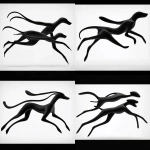
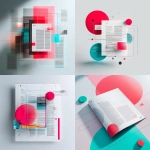



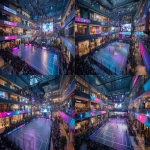
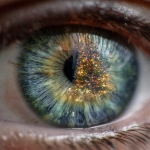
](https://images.ai-img.art/thumbnails/150/495da3d67f888cb2b29451be79caa418d737872bfbbc448175517c57d56faa70.webp)


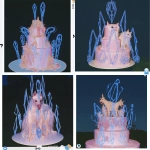




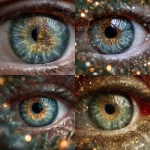

](https://images.ai-img.art/thumbnails/150/beaaf2af72d3537d73c8c13d4ec66e4bd9510305c07f8730f4fff14fa5183be3.webp)

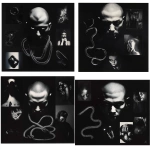
](https://images.ai-img.art/thumbnails/150/f6821b2644e015cea7d1e826f8b3baf4c8c4698897d46869e6e61bcc59b070a3.webp)
